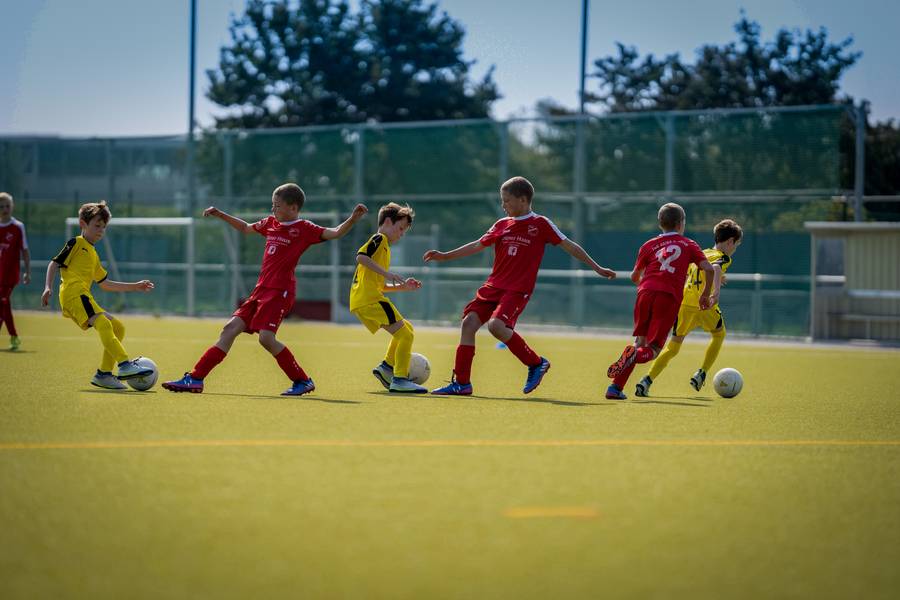
Why Football is A Character-Building Sport
For many in the UK, football is more than a game. What initially began as a pastime has evolved into a cultural phenomenon, bringing people from all walks of life together and creating lasting memories. With over 40,000 registered football clubs in England, each commanding legion of fans, the sport's influence is undeniable. Whether it's the thrill of an unexpected victory, the strategy behind every match or the camaraderie shared among fans, football resonates deeply with the British.
Football is a sport that profoundly builds character by teaching resilience, teamwork, and discipline. Engaging in football encourages players to overcome adversity, develop leadership skills, and form lasting relationships, all of which contribute to personal growth and strong moral character?. Similarly, playing any sport requires a blend of skill, knowledge, and discipline. This is akin to playing at a premier online casino picked from NoDepositTracker, where understanding the game rules, making informed decisions, and exercising responsible gambling are essential.
From teamwork and cooperation to discipline and resilience, let's explore how football helps shape character and develop skills that last a lifetime.
Teamwork
First and foremost, football is a team sport with 11 active players on the field, each with a specific role and unique set of responsibilities. Being part of a football team teaches players to appreciate the value of their own roles and recognize how their teammates' roles contribute to the team's overall success. Remember, there is no 'I' in team. A midfielder must rely on defenders for support, while a striker depends on midfielders to provide accurate passes. Each goal is a team effort, with players rallying around each other to achieve their shared desire for victory.
Leadership Skills
Playing football is also an excellent way to develop leadership skills. On the field, captains and key players often step up to motivate their teammates and lead by example, fostering confidence and a sense of responsibility. These leadership roles, whether formal or informal, teach young athletes how to make quick decisions, handle pressure, and inspire others.
Moreover, the sport requires players to communicate effectively, strategize, and adapt to changing situations. These experiences help build critical leadership skills that extend beyond the football field, shaping young athletes into confident and capable future leaders.
Discipline
While football is often seen as a fun extracurricular activity, the high levels of commitment it demands can also instil discipline in players. Football involves regular and rigorous training sessions, where players must stick to strict practice schedules, follow coaches' instructions, and consistently work on improving their skills.
The sport also has a comprehensive set of rules that players must learn and follow, teaching them to respect authority. Moreover, balancing football with academics is no easy feat, as many teams require players to maintain high grades to participate in games. This helps players practice effective time management, prioritize tasks, and stay organized to ensure they are on top of all their commitments.
Mental and Physical Health
Football demands that players maintain physical fitness through regular exercise and a healthy lifestyle. It also includes training sessions that typically incorporate a blend of cardiovascular workouts, strength training, and flexibility exercises. These elements help players enhance their stamina, muscle strength, and agility.
Moreover, football emphasizes the importance of proper nutrition to sustain optimal performance. Players learn to make healthier dietary choices to maintain energy levels and aid in recovery after strenuous physical exertion. This awareness of nutrition and fitness often extends beyond the field, promoting lifelong habits that contribute to overall well-being.
Resilience
Studies indicate that participating in team sports can significantly enhance mental well-being, and football exemplifies this effect. Despite the game's inherent mental, physical, and emotional challenges, it serves as a powerful teacher of resilience. Whether enduring demanding training sessions, physical impacts, or recovering from injuries, football players learn to rebound from setbacks and persevere through adversity.
Moreover, football equips players with tools to manage stress, cope with disappointments such as losses or personal setbacks, and navigate conflicts with teammates. The camaraderie within the team, along with support from coaches and peers, fosters emotional resilience. Players cultivate a profound sense of determination, optimism, and the capacity to emerge stronger after facing setbacks.



















